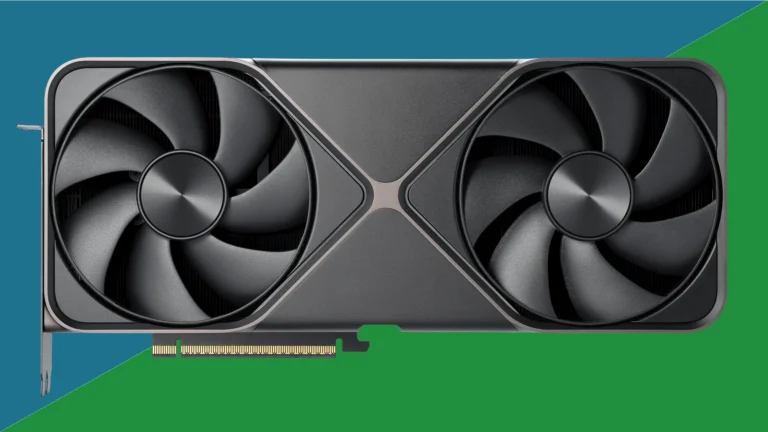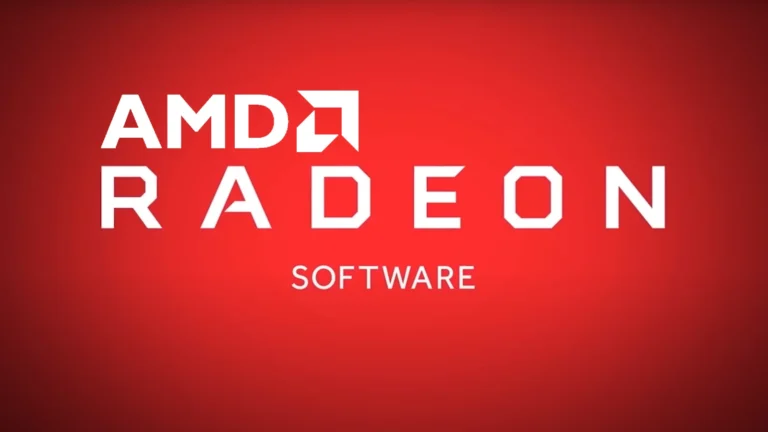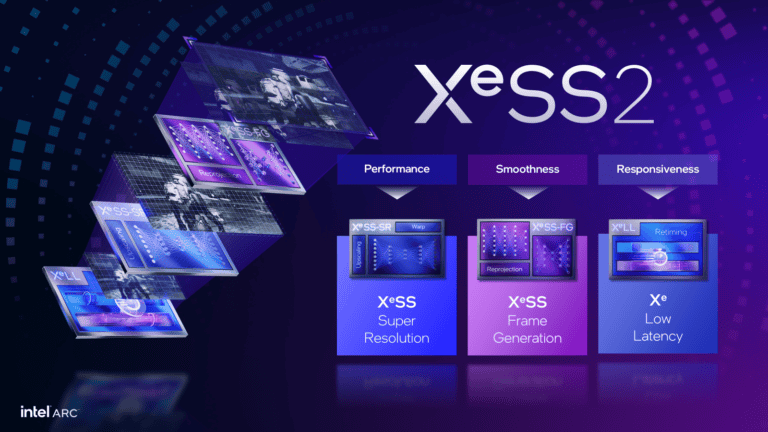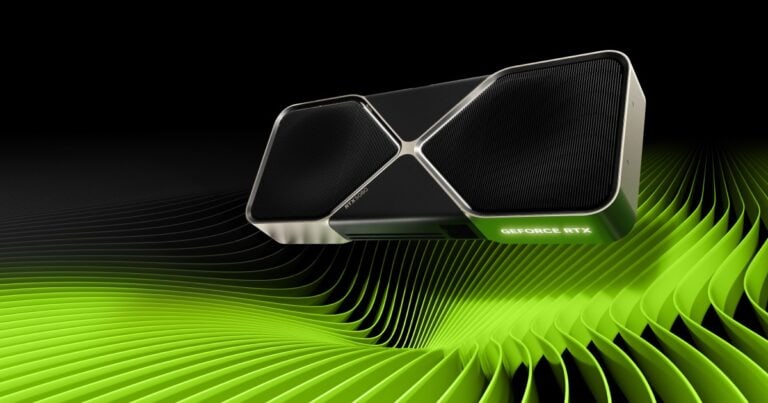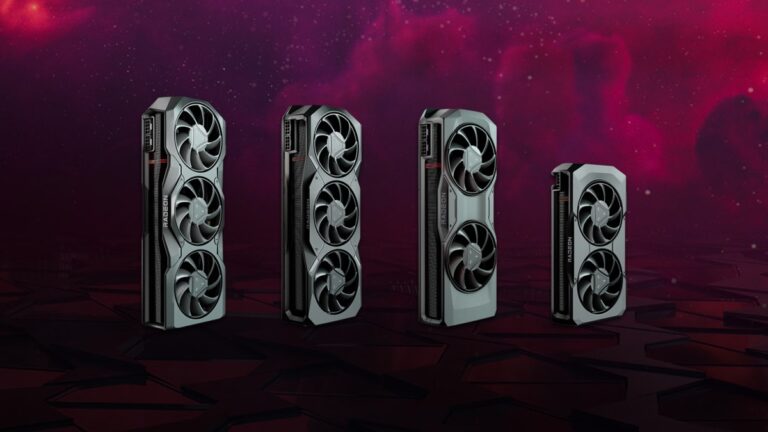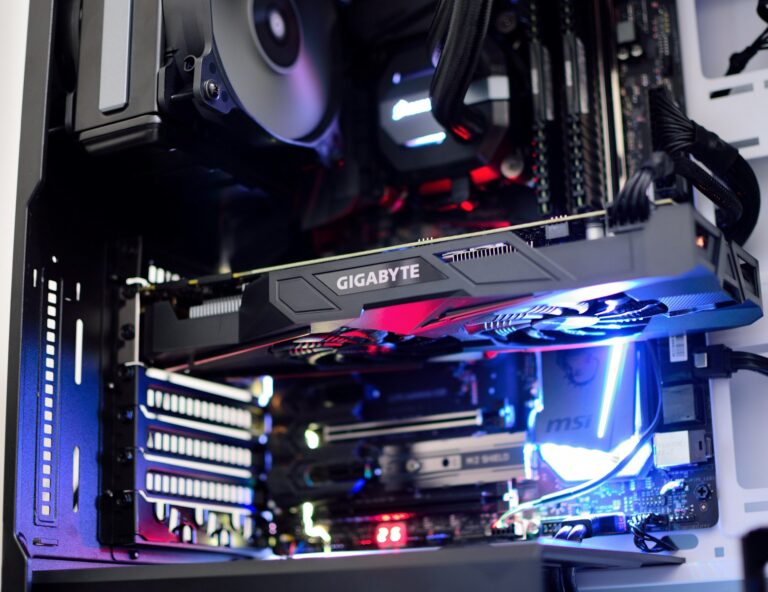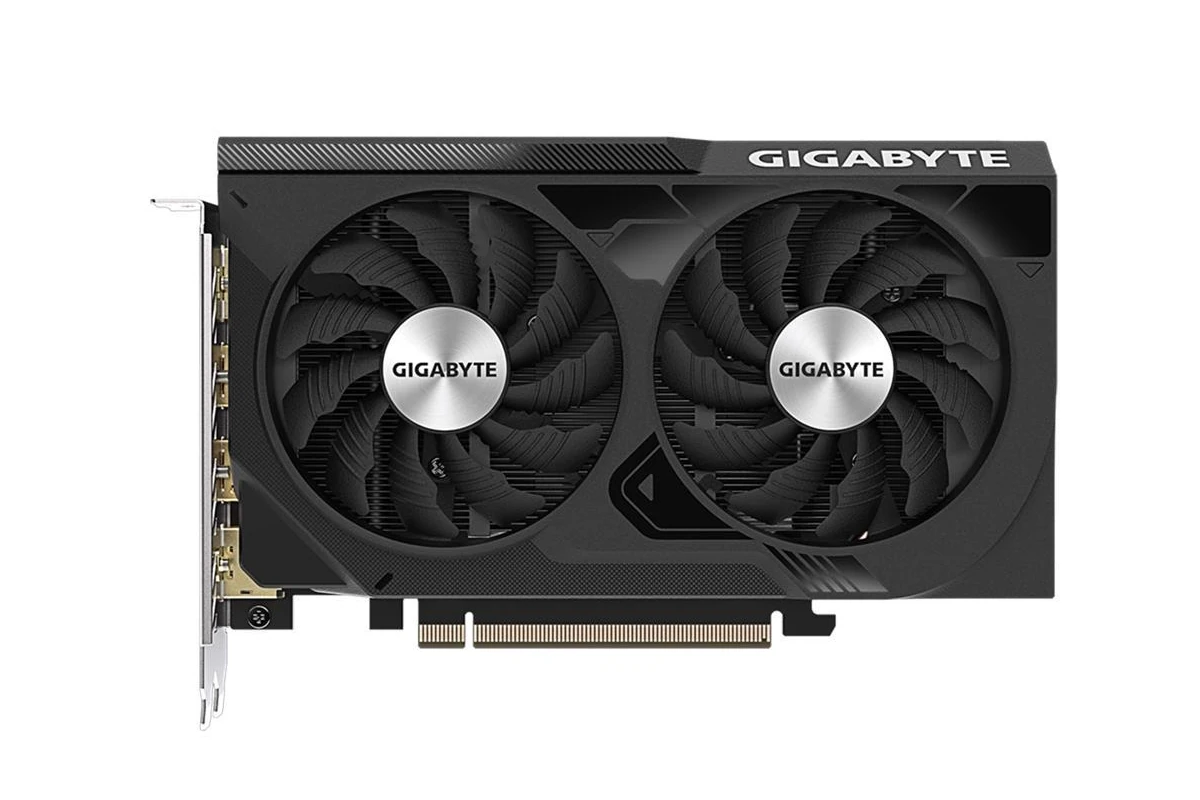
The anticipation surrounding Nvidia’s upcoming RTX 5060 is increasing, and for good reason. This mid-range graphics card seems poised to be a potential game-changer, offering impressive performance and advanced features at an affordable price. Although specific details are still undisclosed, let’s look at the latest rumors and leaks to uncover what the RTX 5060 might offer to gamers.
The RTX 5060 has the potential to deliver significant performance improvements and cutting-edge features to the mid-range GPU market. The RTX 5060 is expected to offer better performance than the RTX 4060 at a similar price point. It will likely use Nvidia’s new Blackwell architecture. This should bring improvements in both rasterization and ray tracing.
Early rumors suggest the RTX 5060 may have 4608 CUDA cores and 8GB of GDDR7 memory. These specs could change before launch. The card might arrive in early to mid-2025. Exact dates are not set yet.
Nvidia RTX 5060: A Closer Look at the Anticipated Mid-Range Powerhouse
Release Timeline
While initial speculations hinted at a late 2024 launch, recent rumors suggest the Nvidia RTX 5060 might be delayed. The revised timeline now points to an early-to-mid 2025 release. It’s possible NVIDIA is taking extra time to perfect the Blackwell architecture or navigate supply chain challenges.
Performance Expectations
Early predictions paint a promising picture for the RTX 5060’s performance:
- Generational Leap: It’s anticipated to offer a substantial performance jump over its predecessor, the RTX 4060.
- Comparable to RTX 3070: Some sources even suggest it could rival or even surpass the RTX 3070, offering excellent 1080p gaming and potentially decent 1440p performance.
- Ray Tracing & DLSS 3: Expect further improvements in ray tracing capabilities and DLSS 3 performance, enhancing visual fidelity and frame rates.
Rumored Specifications
Here’s a glimpse of the speculated specifications for the RTX 5060:
| Feature | Expected Specification |
|---|---|
| Architecture | NVIDIA Blackwell |
| Manufacturing Process | TSMC 4nm |
| CUDA Cores | Around 4608 |
| Memory | 8GB GDDR7 |
| Memory Bus Width | 128-bit |
| Power Consumption | Estimated around 115W (lower than RTX 4060) |
Target Market
The RTX 5060 is poised to become the go-to choice for budget-minded gamers who prioritize solid 1080p/1440p gaming. Its blend of performance, power efficiency, and affordability could make it a popular choice for mainstream gaming builds and laptops.
Key Takeaways
- The RTX 5060 aims to boost performance in the mid-range GPU market
- It will use new Blackwell architecture for better graphics and ray tracing
- The card may launch in 2025 with improved specs over the RTX 4060
Overview of Nvidia’s RTX 5060
The RTX 5060 is set to be Nvidia’s next mid-range graphics card. It will use new technology to boost gaming performance. The card aims to offer good value for 1080p and 1440p gaming.
Evolution from Ampere to Ada
Nvidia’s RTX cards have made big jumps between generations. The move from Ampere (RTX 30 series) to Ada (RTX 40 series) brought key changes. Ada cards use newer chip designs. This helped them run faster and use less power.
The RTX 5060 will likely use Blackwell Architecture. This should give it a big boost over the RTX 4060. Blackwell may offer better ray tracing and AI features. It could also make the card more power-efficient.
Positioning in the RTX 50-Series
The RTX 5060 will sit in the middle of Nvidia’s lineup. It will offer a balance of price and performance. The card may target 1080p gaming at high refresh rates. It could also handle 1440p at good settings.
Rumors suggest the RTX 5060 might have:
- 6000-8000 CUDA cores
- 12GB or 16GB of GDDR7 memory
- 192-bit memory bus
- TDP around 150-180W
These specs would make it stronger than the RTX 4060. The RTX 5060 could offer performance close to an RTX 4070 at a lower price. This would make it a good choice for many gamers.
Technical Specifications and Architecture
The RTX 5060 brings significant upgrades in core architecture and memory technology. These improvements aim to boost performance and efficiency for gamers and content creators.
Blackwell Architecture Explained
The RTX 5060 is based on NVIDIA’s Blackwell architecture. This new design builds on the success of previous generations. It offers enhanced ray tracing and AI capabilities.
Blackwell introduces more efficient processing units. These units handle complex graphics tasks faster than before. The architecture also improves power efficiency. This means better performance without increasing energy use.
One key feature is the updated Tensor Cores. These specialized processors boost AI-related tasks. They enable faster DLSS upscaling and improved noise reduction in games.
Core Counts and Streaming Multiprocessors
The RTX 5060 is expected to have a higher core count than its predecessor. Estimates suggest it may have between 6000 to 8000 CUDA cores. This increase allows for more parallel processing power.
Streaming Multiprocessors (SMs) are the building blocks of NVIDIA GPUs. Each SM contains CUDA cores, Tensor cores, and ray tracing cores. The RTX 5060 will likely have more SMs than the RTX 4060.
This boost in core count and SMs translates to better performance in games and creative applications. Users can expect smoother framerates and faster render times.
Memory Interface and Bandwidth
The RTX 5060 is set to use GDDR7 memory. This new memory type offers higher speeds and better efficiency than GDDR6.
Memory capacity is expected to be either 12GB or 16GB. This increase from previous models allows for better handling of high-resolution textures and complex scenes.
The memory bus width might be 192-bit. Combined with GDDR7’s high speeds, this could result in significantly improved memory bandwidth. Higher bandwidth means faster data transfer between the GPU and memory. This leads to better performance in memory-intensive tasks.
Expected Performance and Competitive Analysis
The RTX 5060 is set to offer improved performance over its predecessors. It will likely compete well against AMD’s offerings in ray tracing and AI tasks.
Benchmarking Against RTX 40-Series and AMD Offerings
The RTX 5060 is expected to outperform the RTX 4060. It may even match the RTX 4070 in some tests. This jump in power could make it a strong choice for 1440p gaming.
AMD will likely release competing cards around the same time. The battle between Nvidia and AMD should be close. Gamers will benefit from this competition through better prices and features.
The RTX 5060 might use more power than the 4060. Some rumors suggest it could draw up to 170 watts. This is higher than the 4060’s 115 watts. Users may need to consider their power supplies when upgrading.
Ray Tracing and AI Performance
Ray tracing should see big gains with the RTX 5060. Nvidia has been improving this tech with each generation. Games with ray tracing may run much smoother than on the 4060.
AI tasks are another area where the 5060 could shine. Nvidia’s AI-powered DLSS technology helps boost frame rates in games. The new card might handle these tasks even better than before.
For content creators, improved AI performance could speed up video editing and 3D rendering. This makes the 5060 a good choice for more than just gaming.
Market Launch and Consumer Information
The RTX 5060 launch brings new options for PC gamers. Its release date, price, and upgrade path are key factors for buyers to consider.
Release Date and Availability
The RTX 5060 is set to hit shelves in early to mid-2025. This timeline follows NVIDIA’s usual pattern of releasing mid-range cards after high-end models. Expect the RTX 5090 and 5080 to come out first, likely in late 2024.
Stock may be limited at first. Gamers should watch for pre-order dates from major retailers. Online stores and computer shops will carry the card. Availability might improve a few months after launch as production ramps up.
Pricing Structure Compared to Predecessors
NVIDIA hasn’t announced official pricing yet. Based on past trends, the RTX 5060 may cost slightly more than the RTX 4060 at launch. The 4060 started at $299, so the 5060 might be priced around $329 to $349.
Here’s a possible price comparison:
- RTX 3060: $329
- RTX 4060: $299
- RTX 5060: $329-$349 (estimated)
The final price will depend on performance gains and market conditions. Chip shortages or high demand could push prices higher.
Recommendations for Upgrade Paths
For RTX 3060 owners, the 5060 might offer a good upgrade. The jump in performance should be noticeable. RTX 4060 users may want to wait, as the gains might be smaller.
Entry-level users with older cards will see big improvements with the 5060. It’s a solid choice for 1080p and 1440p gaming. Enthusiasts might prefer the RTX 5070 Ti for better 4K performance.
Those happy with their current setup can wait for reviews before deciding. The 5060’s real-world performance will be the true test of its value.
Frequently Asked Questions
The RTX 5060 graphics card brings new features and improvements. Let’s look at some key details about this GPU.
What are the specifications of the latest RTX 60 series card?
The RTX 5060 is still in development. Exact specs are not yet known. It will likely have better performance than the RTX 4060. The card may offer improved ray tracing and AI capabilities.
How does the price of the new RTX 60 series model compare to the previous generation?
Pricing for the RTX 5060 has not been announced. It may be priced similar to the RTX 4070, depending on its specs. The final price will be set closer to launch.
When was the newest RTX 60 series graphics card released?
The RTX 5060 has not been released yet. It is expected to launch in late 2024 or early 2025. The exact date will be announced by NVIDIA closer to release.
What is the performance difference between the RTX 60 series card and the RTX 40 series?
Performance gains for the RTX 5060 are not yet known. It will likely be faster than the RTX 4060. The increase may be small if bus limitations remain. More details will come as the launch gets closer.
What are the VRAM capabilities of the new RTX 60 series GPU?
VRAM specs for the RTX 5060 have not been confirmed. It may have 8GB or more of GDDR6 memory. The memory bus width is also unknown. These details will be shared before release.
Can the RTX 60 series card support virtual reality gaming efficiently?
The RTX 5060 should handle VR gaming well. It will likely have improved VR performance over the 4060. Exact VR capabilities will depend on its final specs. More info will come as the launch nears.

